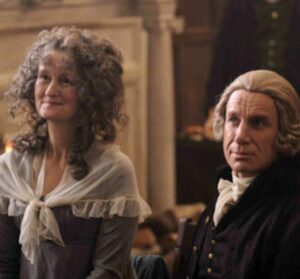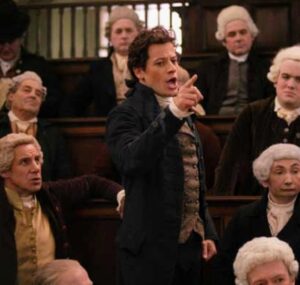I had an edifying conversation yesterday with a friend who – I’m guessing – at least on occasion arrives at different political conclusions than I. This man is my brother in Christ, and I know that the Holy Spirit will continue to bear fruit in my own soul as the direct result of our conversation. My friend and I agreed upon the main thing yesterday, and that is that the gospel of Jesus is the main thing! We also compared, at least on some level, our understanding of how much the church should speak into issues of public life and public policy. So the central issue with which I’m left wrestling might be expressed like this: Is there any room for the church to speak into the issues of the world/culture/government/politics in such a way that the church’s gospel witness is not compromised, or relegated to second place?
That’s not such an easy question to answer, because we know that the enemy of the church would love nothing more than to see the gospel of Jesus snuffed out, in whatever way possible. If that can be accomplished by getting church folks all riled up over political issues so that their first love is forsaken, so be it. That would be a tremendous victory for the enemy. We can all fall prey to misguided passions, and we all must remain on high alert in that regard. Can we compromise our gospel witness by hyper-activism? Yes. It’s a real danger. And, just for the record, this can happen on the political right and on the political left. The right can get so caught up in the “culture wars” that we lose the primacy of loving and serving our neighbor. The left can get so caught up in “social justice” that we lose the primacy of objective gospel truth. We have to keep the main thing the main thing. Like our Lord, we want to be “full of grace and truth” (John 1:14).
That being established, I’d like to explain why I do speak out in regard to issues of law and justice, and in regard to moral issues which wield widespread cultural and societal implications, like the current battles over gender redefinition and critical race theory. I speak up because I consider them gospel issues. They’re not gospel issues in the sense that “man is sinful and in need of a Savior” is a gospel issue, but they’re gospel issues in the sense that the gospel message itself is maligned by a wrong (or even incomplete) understanding of those issues. In regard to the two issues I’ve raised here, I would explain it like this: 1) We can’t know God if we don’t understand His preeminence in our lives as the Creator who made us, in His image, male or female – this is foundational to Genesis and to the core of Biblical theology; and 2) We can’t experience the grace of salvation until we admit that our primary problem is sin, not race. As such, gender and CRT become key gospel issues, in my opinion. I would contend that the church must address such issues, and address them clearly.
Have you ever heard of Hannah More? Hannah was a firecracker of a lady who lived in England back in the late 1700s when the abolitionist movement was gaining steam in Great Britain. Hannah lived among the trendy and fashionable in London, and she used her position to share with people a pamphlet that she had created to raise awareness about the evils of slavery. She would ask unsuspecting social elites questions like this: “Have you ever seen the inside of a slave ship?” (Most people had not.) And then Hannah would provide pictures of the horrific conditions which slaves endured, in order to plant haunting images in people’s minds so that she’d leave them bothered – really bothered – by the injustices of slavery.

The faithful life and bold public witness of Hannah More left a huge impact on a man whose name you’ve likely heard before, William Wilberforce. Wilberforce was a devout follower of Christ who is remembered for his life’s work, which was – like that of Hannah More – the abolition of slavery. Wilberforce was dynamic and eloquent, and his antislavery efforts rather astonishingly bore fruit in 1807, when Parliament abolished the slave trade in England. He then worked to ensure that the slave trade laws were fully enforced, and that slavery in the British Empire was entirely abolished. The personal health of Mr. Wilberforce prevented him from leading the final charge of his life’s campaign, but he learned three days before his death that the passage of the emancipation bill was ensured in committee. I don’t have to tell you that this became one of the significant turning points in the history of the world.

William Wilberforce and Hannah More were friends and allies. At least some of the significance of their relationship is captured in the 2006 film, Amazing Grace. Wilberforce, played by Ioan Gruffudd, was struggling profoundly with his vocational calling. As a Christian believer, he sensed a call to the ministry. But he also sensed that God had gifted him with some unique abilities which might be used of the Lord if Wilberforce would commit his energies to serving faithfully in the House of Commons. I want to re-create for you a tiny but pivotal scene from that movie …
(Wilberforce, More, and others – including the abolitionist Thomas Clarkson – are seated at a dinner party.)
Clarkson: “Mr. Wilberforce, we understand you’re having problems choosing whether to do the work of God or the work of a political activist.”
[Pause. Gulp.]
More: “We humbly suggest … that you can do both.”
That moment was a turning point for Mr. Wilberforce. Wilberforce came to understand that the gospel he believed and professed carried with it, intrinsically and by God’s design, implications for every sphere of society – and that the God of the universe was sending him into the bullseye of England’s cultural storm. It wasn’t anything less than gospel ministry. It was gospel ministry. It is gospel ministry.
Perhaps that thought will be a turning point for you as well. Because, friends, we have to be careful never to make an “either/or” out of something which God intended to be a “both/and.” Maybe Abraham Kuyper (1837-1920) – the theologian, journalist, and Prime Minister of the Netherlands – summarized it best: “There is not a square inch in the whole domain of our human existence over which Christ, who is sovereign over all, does not cry, ‘Mine!’”
Pastor Charles

There is an answer to the culture wars and your question about the church remaining true to its gospel witness. The answer is both found in pray and answered in prayer. When we ask this simple question, with genuine sincerity: “How can I pray for you today?,” we extend God’s grace, mercy and love in a gesture that says we care about the person, not for his/her political stance but because he/she is a child of God. We can have opposing views and passion for them but still go to God in prayer for another, and especially for what they declare as need, not what we want to insert as their need. The answer to our person-to-person relationships is prayer. The answer to our country’s turmoil is prayer.
Pastor I appreciate you addressing these issues! I agree with you 100 percent!
Politics, society, and culture MUST be addressed by The Church – carefully, but not avoided. If not for “The Black Robed Regiment” during the revolutionary war, we would still be English subjects. There is a two-volume book devoted to understanding the role of this regiment, entitled (quite originally) “The Black Robed Regiment”. It is very applicable today as well.
Thank you for addressing these issues.
I think that I agree with you. For the most part, we can know how Politicians vote on the issues. We should be free to discuss how they vote.